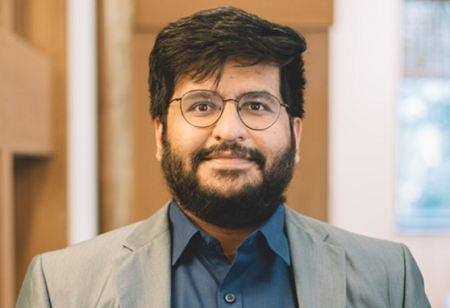Gaurav Parchani, CTO and Co-Founder, Dozee

A mechanical engineer by education, Gaurav graduated from the Indian Institute of Technology, Indore, in 2013. Before starting Dozee, he worked as a vehicle dynamics expert at Altair Technologies. In 2015, he co-founded Dozee with Mudit Dandwate, an IIT Mumbai alumnus. Gaurav engaged in a conversation with the India Pharma Outlook magazine in order to clear queries regarding how AI integrations are transforming Indian healthcare.
How are AI integrations currently transforming healthcare practices in India?
AI is a force multiplier in healthcare, enabling providers to scale their capabilities and maintain quality care. Without technology like artificial intelligence (AI), skilled healthcare providers can offer good care on an individual level, but the limitations of the current system become apparent and worsen over time. AI, however, addresses these challenges by facilitating scalability. It acts as a force multiplier when integrated with existing processes, enhancing the ability to deliver quality healthcare on a large scale, differentiating between serving a thousand patients and catering to a million.
It's crucial to recognize that while AI catalyzes healthcare transformation, it is not a one-size-fits-all solution. The integration of AI, algorithms, and machines requires a thoughtful and collaborative strategy due to the inherent complexities in healthcare delivery. Machine learning algorithms, for instance, can analyze extensive health data, offering insights for personalized treatment plans, predictive analytics, and efficient resource allocation. To ensure successful implementation, collaboration among healthcare professionals, policymakers, AI developers, and the community is essential. Prioritizing ethical considerations, data privacy, and security measures build trust in these technological advancements.
In conclusion, while AI, algorithms, and machines are pivotal in improving healthcare, they are not standalone solutions. A holistic, collaborative approach that combines AI innovation with human expertise is necessary for sustainable and impactful results in the Indian healthcare system.
How do you foresee AI integrations shaping the future of medical diagnosis and treatment in India?
The transformative role of AI in reshaping healthcare delivery is evident in various aspects:
Diagnosis and Predictive Analytics: AI algorithms significantly improve diagnostic capabilities by analyzing medical imaging, pathology reports, and patient data, enabling more accurate and timely diagnoses. Predictive analytics powered by AI anticipate disease progression, facilitating proactive and personalized treatment strategies.
Remote Patient Monitoring: AI-driven remote patient monitoring solutions, such as those developed by Dozee, enable continuous tracking of vital signs. This facilitates early detection of health anomalies and effective management of chronic conditions.
Drug Discovery and Development: AI accelerates drug discovery by analyzing massive datasets to identify potential candidates and predict their efficacy, reducing the time and resources required for bringing new medicines to market.
Operational Efficiency and Resource Management: AI optimizes healthcare operations by streamlining administrative tasks, improving resource allocation, and enhancing overall efficiency, from appointment scheduling to inventory management.
Personalized Medicine: AI analyzes patient-specific data, including genetics, lifestyle, and environmental factors, to implement personalized medicine, tailoring treatment plans to individual needs and optimizing therapeutic outcomes.
Telemedicine and Virtual Health Assistants: AI-powered virtual health assistants in telemedicine assist with initial assessments, answer patient queries, and provide relevant health information, enhancing healthcare accessibility, especially in regions with a shortage of medical professionals.
Fraud Detection and Security: AI plays a crucial role in ensuring the security and integrity of healthcare data, detecting anomalies, unauthorized access, and potential security threats to safeguard sensitive patient information.
What challenges and opportunities do AI integrations present for healthcare providers and patients in the Indian context?
India faces significant challenges in healthcare due to a stark disparity between the demand for resources and the patient load. The doctor-to-patient and nurse-to-patient ratios underscore the difficulties in providing widespread access to quality healthcare. Addressing this issue requires leveraging AI to scale the potential of existing infrastructure and enhance access to medical services across the country. AI, rather than replacing existing systems, becomes a crucial amplifier of efforts in the healthcare sector.
It's crucial to recognize that while AI serves as a catalyst for healthcare transformation, it is not a one-size-fits-all solution. The integration of technology, algorithms, and machines requires a thoughtful and collaborative strategy due to the inherent complexities in healthcare delivery. Machine learning algorithms, for instance, can analyze extensive health data, offering insights for personalized treatment plans, predictive analytics, and efficient resource allocation.
Please provide examples of successful AI integrations in Indian healthcare settings and their impact on efficiency and quality of care.
From utilizing AI algorithms for diagnostic imaging to successfully facilitating robotic-assisted surgeries and virtual health assistants, these examples demonstrate the successful integration of AI across multiple healthcare domains, revolutionizing care delivery methods for medical professionals.